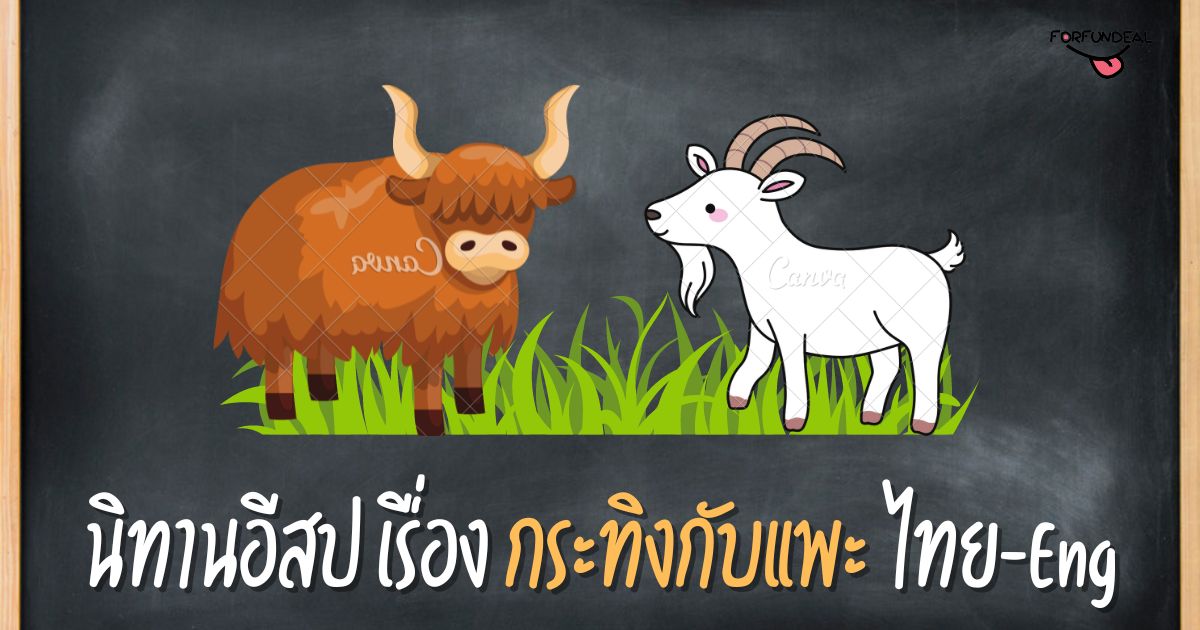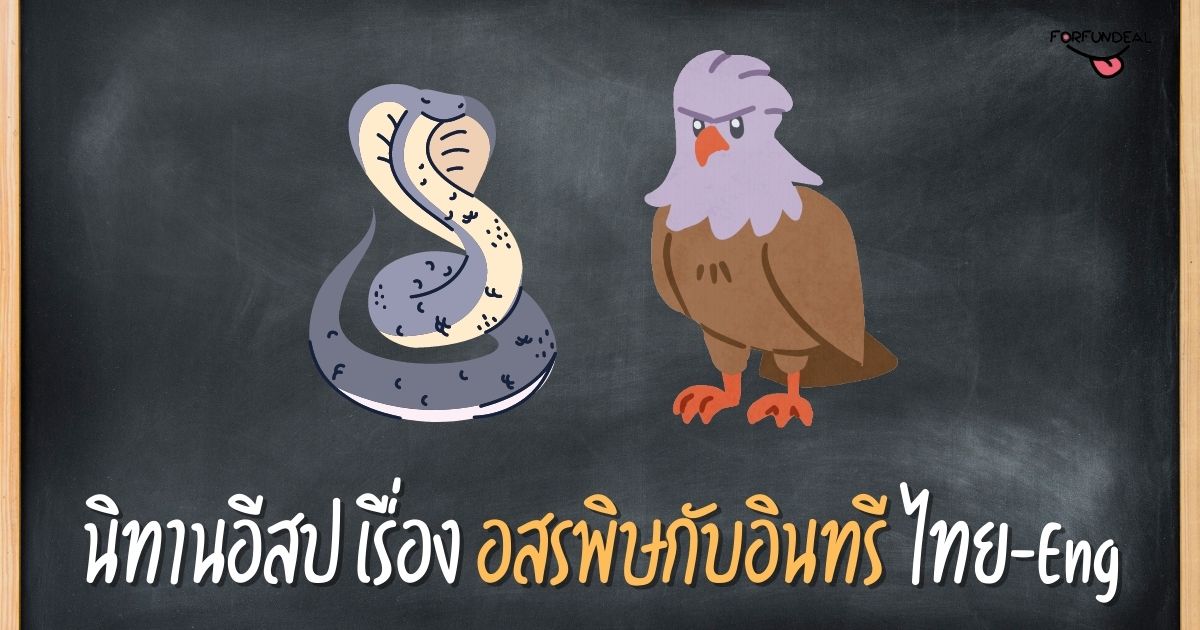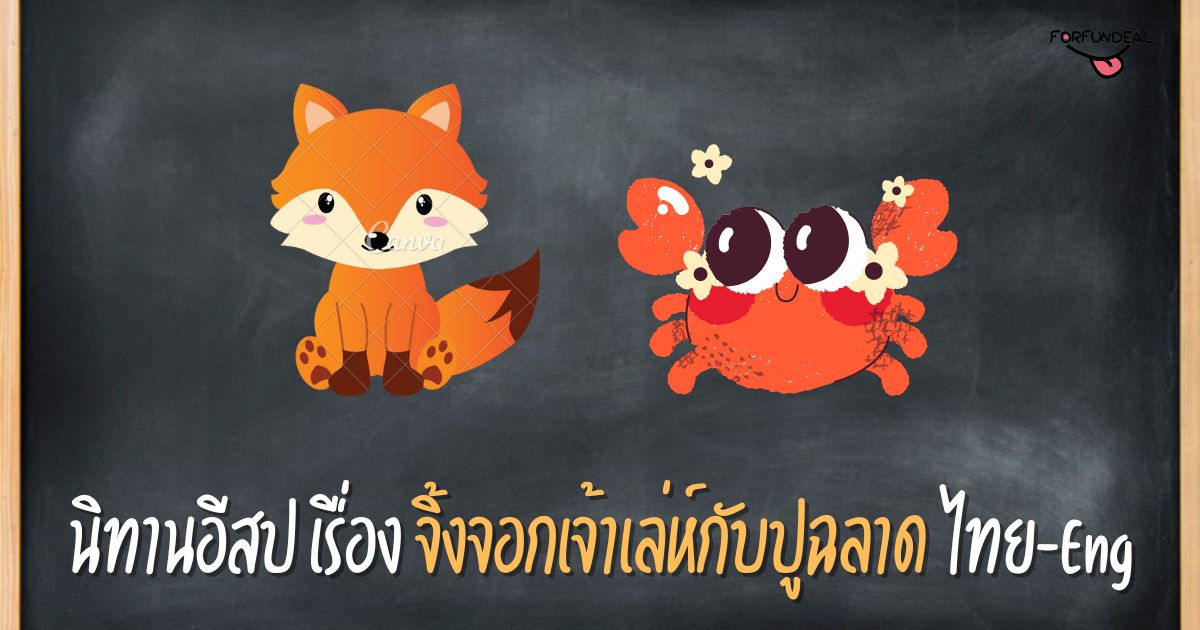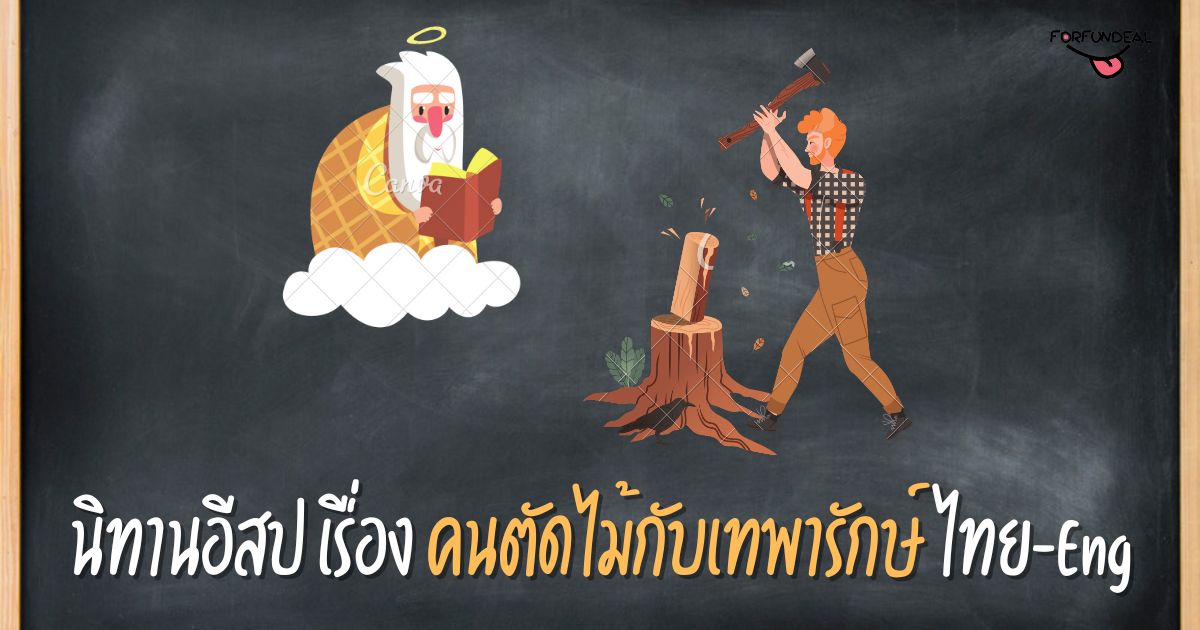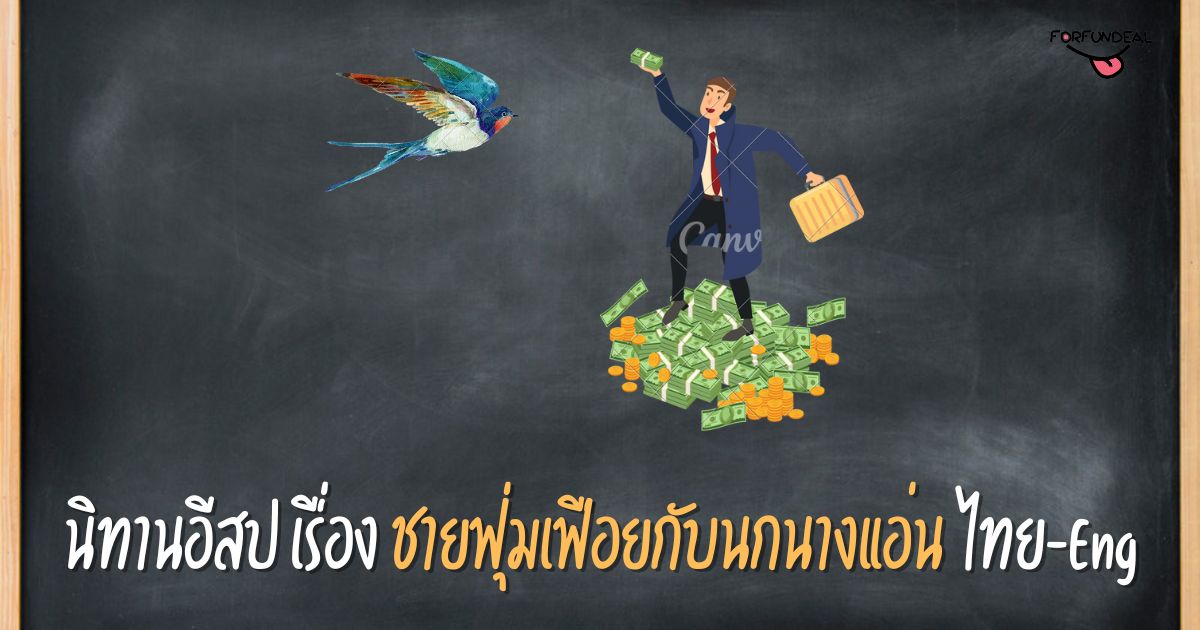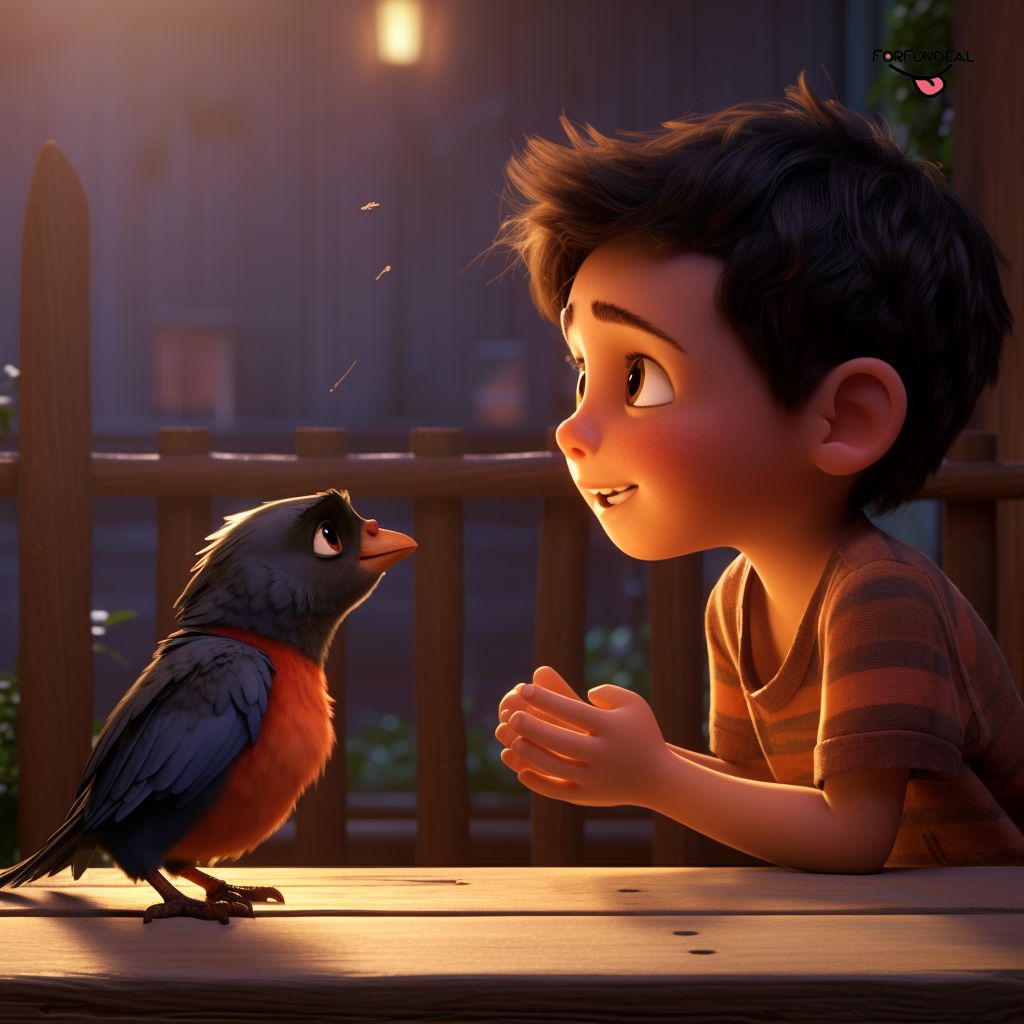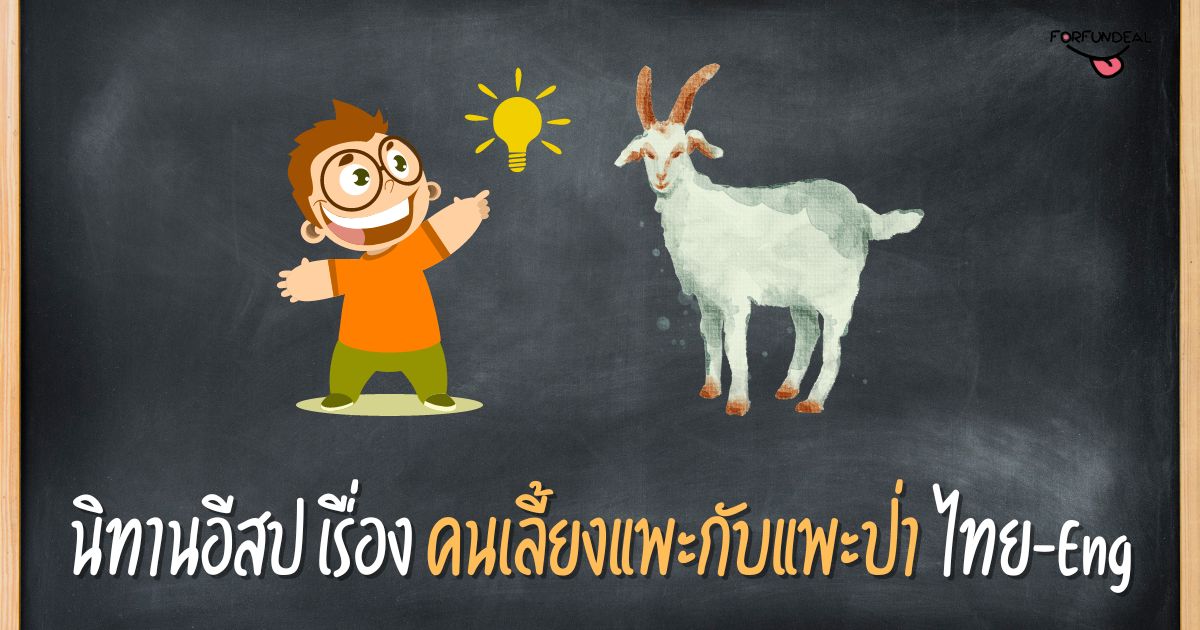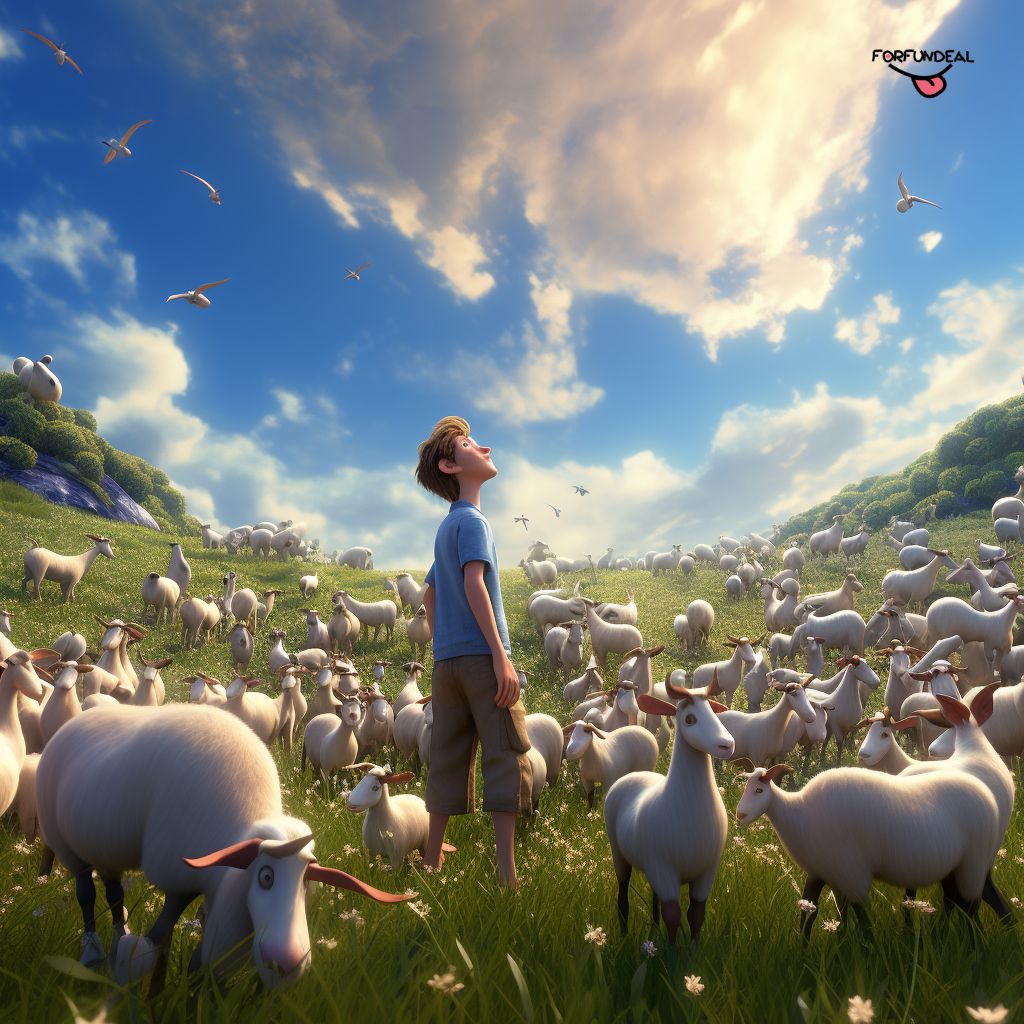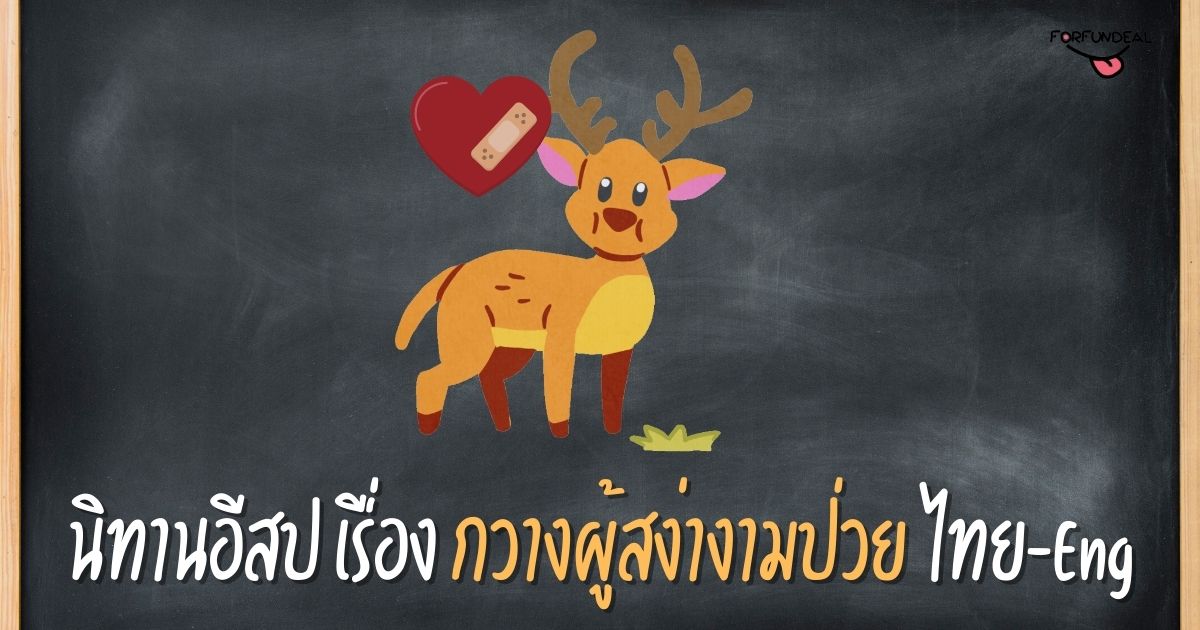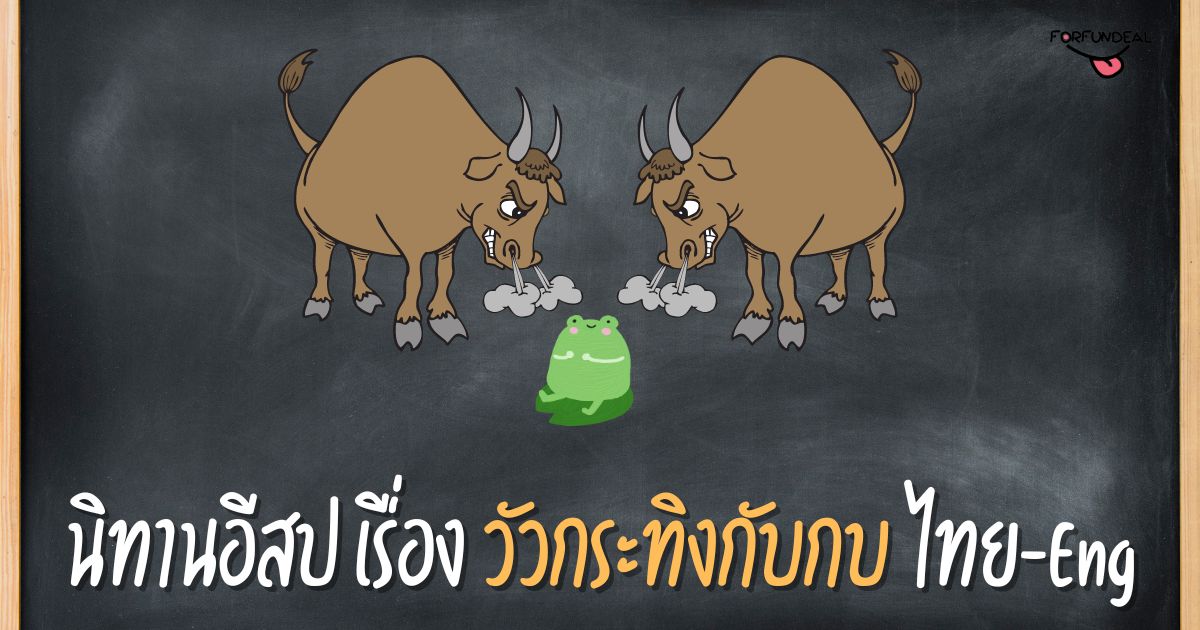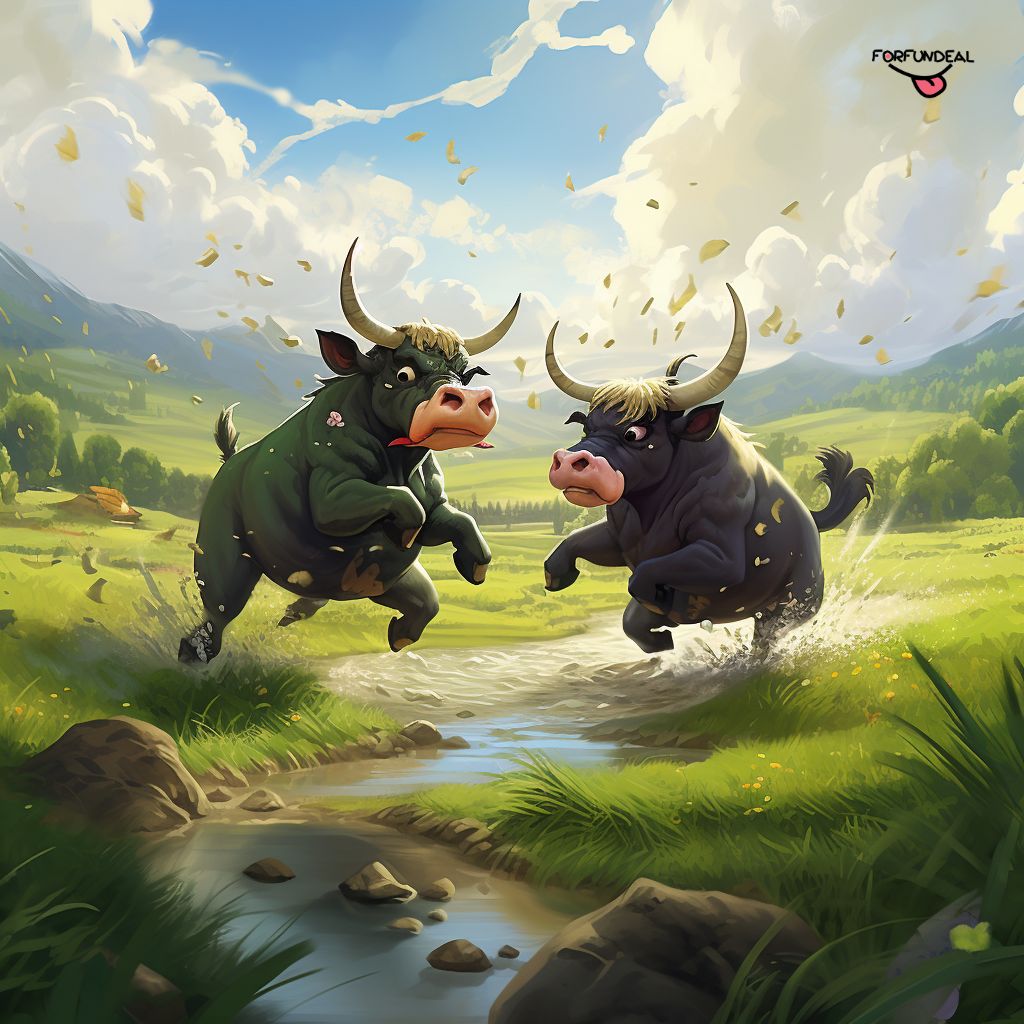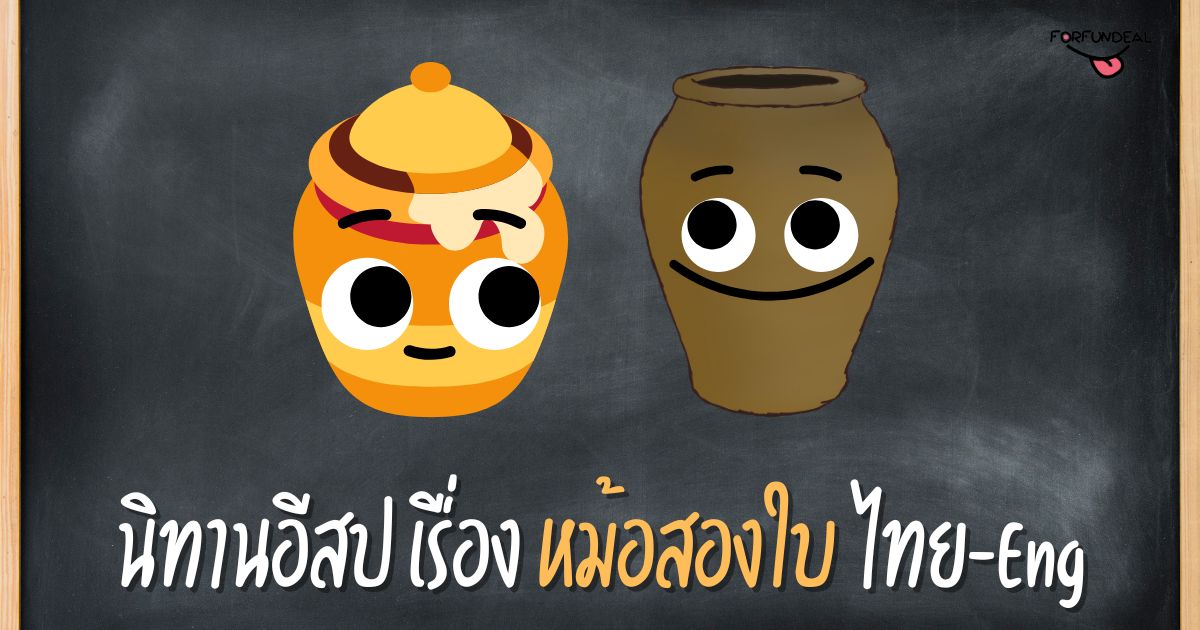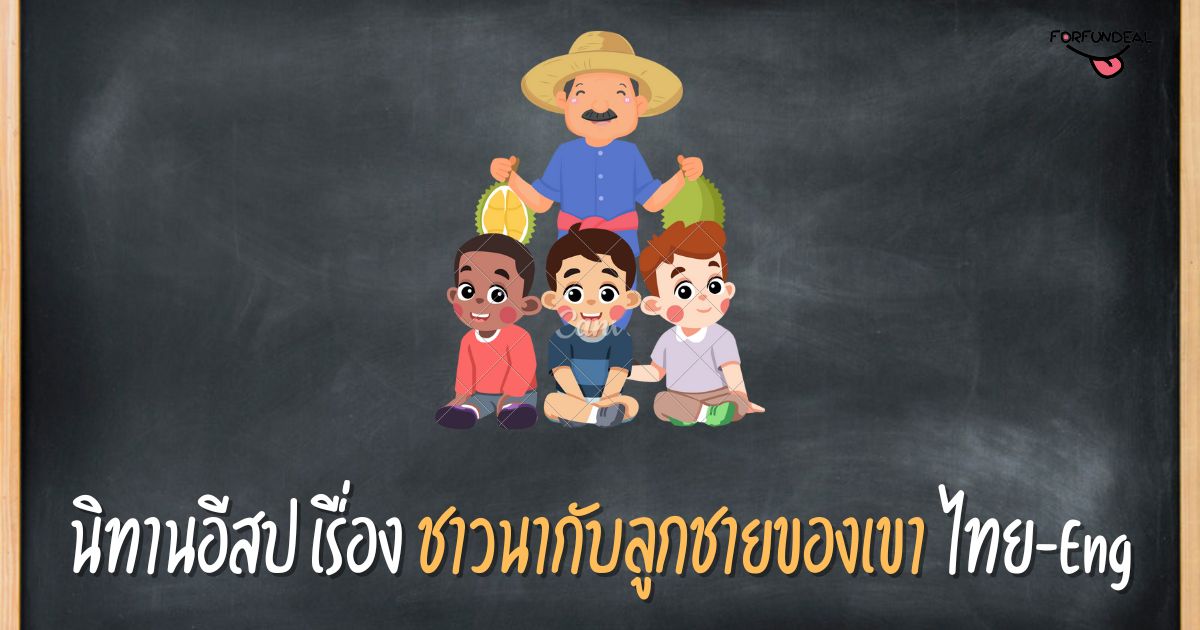“กระทิงกับแพะ” เป็นนิทานอีสปที่สอนเราถึงอันตรายจากความโลภมากจนนำหายนะมาสู่ตัวเรา และยังสอนการฟังแนะนำของผู้ที่หวังดีกับเราอยู่เสมอ
นิทานอีสปเรื่องกระทิงกับแพะ
กาลครั้งหนึ่งนานมาแล้ว กระทิงผู้แข็งแรงและทรงพลังกับแพะที่ว่องไวและว่องไวอาศัยอยู่ด้วยกันในทุ่งหญ้าเดียวกัน พวกมันมักจะเล็มหญ้าเคียงข้างกัน แต่กระทิงตัวใหญ่และแข็งแรง รู้สึกว่าเหนือกว่าแพะเนื่องจากขนาดและพละกำลังของมัน
Once upon a time, a strong and powerful bull and a nimble and agile goat lived together in the same pasture. They often grazed side by side, but the bull, being large and mighty, felt superior to the goat due to its size and strength.
วันหนึ่งขณะที่พวกมันกำลังเล็มหญ้าใกล้หน้าผาสูงชัน กระทิงตัวนั้นสังเกตเห็นหญ้าหวานที่ขอบหน้าผา กระทิงตัวใหญ่เกินไปที่จะไปถึงหญ้าโดยไม่เสี่ยงต่อการตกจากหน้าผา กระทิงตัวนั้นหงุดหงิดจึงพูดกับแพะว่า “เจ้าตัวเล็กจัง ไปถึงหญ้าอร่อยๆ ที่ริมผาได้ง่ายๆ ทำไมเจ้าไม่ไปกินมันเสียล่ะ”
One day, as they were grazing near a steep cliff, the bull noticed some luscious grass at the edge of the cliff. The bull was too big to reach the grass without risking falling off the cliff. Frustrated, the bull said to the goat, “You are so small and can easily reach that delicious grass at the edge of the cliff. Why don’t you go and eat it?”
แพะแสนรู้รู้ว่าหญ้าใกล้หน้าผานั้นอันตรายที่จะเอื้อมถึง เพราะการก้าวผิดเพียงครั้งเดียวอาจนำไปสู่การตกลงสู่อันตรายได้ แทนที่จะอิจฉาขนาดของกระทิง แพะกลับตอบว่า “กระทิงที่รัก ข้าอาจตัวเล็กกว่าเจ้า แต่ข้าเรียนรู้ที่จะพอใจกับหญ้าที่ข้าสามารถเข้าถึงได้อย่างปลอดภัย พอใจกับสิ่งที่เรามีดีกว่าที่จะเสี่ยงทุกอย่างเพื่อหญ้าที่มากขึ้น”
The wise goat knew that the grass near the cliff was dangerous to reach, as one wrong move could lead to a perilous fall. Instead of being envious of the bull’s size, the goat replied, “Dear bull, I may be smaller than you, but I have learned to be content with the grass that I can safely reach. It’s better to be satisfied with what we have than to risk everything for more.”
กระทิงยังคงไม่เข้าใจความฉลาดของแพะ จึงพูดต่อว่า “แต่หญ้าใกล้หน้าผาดูดีกว่ามาก! ข้าต้องการมัน และข้าจะไม่พอใจจนกว่าจะได้มันมา”
The bull, still not understanding the goat’s wisdom, persisted, “But the grass near the cliff looks so much better! I want it, and I won’t be satisfied until I have it.”
แพะเตือนวัวอีกครั้งเกี่ยวกับอันตราย แต่กระทิงดื้อดึงและยืนกรานที่จะไปถึงหญ้าล่อใจ ขณะที่กระทิงพยายามยืดตัวข้ามหน้าผา มันก็สูญเสียการทรงตัวและล้มลงสู่หายนะ
The goat warned the bull once again about the dangers, but the bull was stubborn and insisted on reaching the tempting grass. As the bull tried to stretch over the cliff, it lost its balance and fell to its doom.
แพะแสนรู้คร่ำครวญกับการสูญเสียเพื่อนของมัน และได้เรียนรู้บทเรียนอันมีค่า ความโลภและความอิจฉาริษยาสามารถบดบังการตัดสินและนำไปสู่ผลลัพธ์ที่เลวร้าย
The wise goat mourned the loss of its companion and learned a valuable lesson: Greed and envy can cloud one’s judgment and lead to disastrous consequences.

นิทานเรื่องนี้สอนให้รู้ว่า
“ความพอใจและปัญญามีค่ามากกว่าอำนาจและความโลภ”
- ความพึงพอใจและความกตัญญู: แพะที่ฉลาดแสดงให้เห็นถึงความสำคัญของการพอใจกับสิ่งที่เรามีและซาบซึ้งในพรที่เราเอื้อมถึง ทรัพย์สินหรือความสำเร็จทางวัตถุไม่ควรเป็นพื้นฐานในการเปรียบเทียบคุณค่าของเรากับผู้อื่น
- เข้าใจข้อจำกัดของตนเอง: แต่ละคนมีจุดแข็งและข้อจำกัดของตนเอง การพยายามเลียนแบบหรือเหนือกว่าผู้อื่นโดยไม่คำนึงถึงความสามารถของเราอาจนำไปสู่ผลลัพธ์ที่ไม่น่าพึงพอใจ
- หลีกเลี่ยงความอิจฉาและความโลภ: ความอิจฉาและความโลภสามารถทำลายล้างและนำไปสู่การตัดสินใจที่ไม่ดี เรื่องราวนี้เตือนไม่ให้โลภในสิ่งที่คนอื่นมีและเน้นย้ำถึงความสำคัญของการชื่นชมคุณสมบัติที่เป็นเอกลักษณ์ของตนเอง
- ความอ่อนน้อมถ่อมตนและสติปัญญา: ความอ่อนน้อมถ่อมตนและสติปัญญาของแพะช่วยให้มันตัดสินใจได้อย่างชาญฉลาด ในขณะที่ความเย่อหยิ่งและความปรารถนาที่จะได้มากกว่านี้ของวัวนำไปสู่ความพินาศ
“Contentment and wisdom are worth more than power and greed.”
- Contentment and gratitude: The wise goat demonstrates the importance of being content with what we have and appreciating the blessings within our reach. Material possessions or achievements should not be the basis for comparing our worth with others.
- Understanding one’s limitations: Each individual has their own strengths and limitations. Trying to imitate or surpass others without considering our abilities can lead to unfavorable outcomes.
- Avoiding envy and greed: Envy and greed can be destructive and lead to poor decision-making. The story warns against coveting what others have and emphasizes the importance of appreciating one’s own unique qualities.
- Humility and wisdom: The goat’s humility and wisdom enabled it to make wise choices, while the bull’s arrogance and desire for more led to its downfall.
โดยสรุปแล้วสอนเราเกี่ยวกับความสำคัญของความพึงพอใจ เข้าใจข้อจำกัดของเรา และหลีกเลี่ยงความอิจฉาและความโลภ มันเตือนเราว่าความพึงพอใจและปัญญาที่แท้จริงมาจากการเห็นคุณค่าของสิ่งที่เรามีและตัดสินใจอย่างรอบคอบตามความสามารถของเรา

